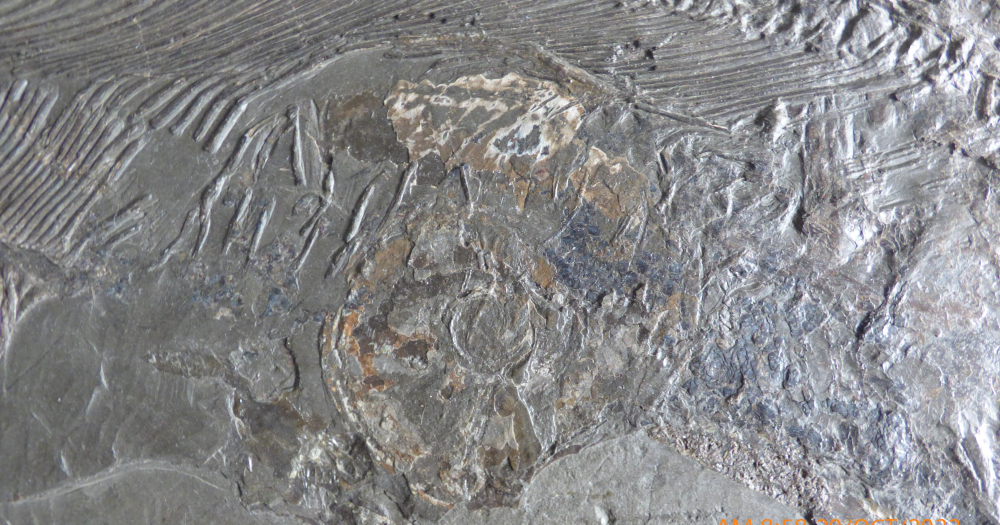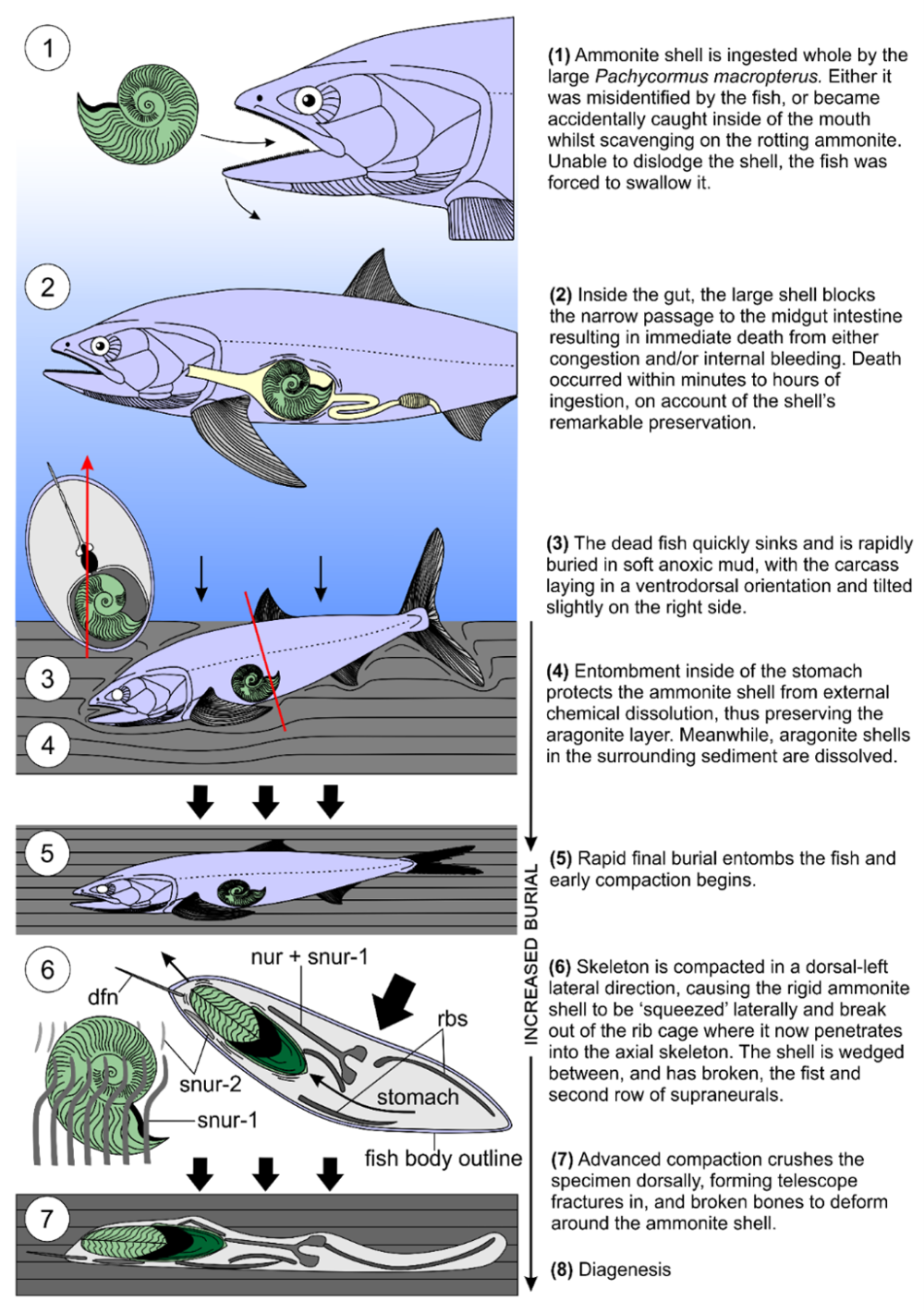An incredible fossil that dates back around 180 million years tells of the unfortunate demise of a bony fish that bit off more than it could chew. Inside the fossilized fish, researchers found an unusually large ammonite that shows little sign of digestion, indicating that it’s probably what killed the fish that swallowed it. To use the paper’s epic title, our Jurassic fish suffered “death by ammonite”.
The fossil isn’t just remarkable for the story it tells, but also for being the first direct evidence of an actinopterygian fish consuming an ammonoid. Actinopterygii are ray-finned fish with extant examples including the invasive lionfish, while ammonoids were a group of cephalopods that have since gone extinct.
The bony fish preserved in Death By Ammonite is Pachycormus macropterus, and it’s thought to date back to a time in the Early Jurassic known as the Toarcian that was between 174 and 182 million years ago. Its fossilized remains were retrieved from the Posidonienschiefer Formation of Germany, a country that recently welcomed its oldest known true spider at a whopping 310 million years old.

The offending ammonite in our Jurassic fish’s “fatal last meal”.
Image courtesy of Sam Cooper
Our actinopterygian might not be quite so ancient, but its stomach contents have proven to be a veritable treasure trove of remarkably well-preserved Jurassic remains. The researchers found evidence of soft-bodied molluscs similar to squid and cuttlefish, as well as younger P. macropterus, and a large belemnite that may have pierced the fish post-burial.
The most remarkable find in the stomach contents lucky dip, however, has to be the whopping great ammonite conch, about 10 centimeters (4 inches) across. The study authors say the fish swallowed the ammonite “likely by accident,” and it seems it paid dearly for this mistake.
In case you’re wondering how death by ammonite works exactly, the team behind the discovery has put together a handy cartoon to explain it.

Swallowing the ammonite created the perfect preservation pocket to keep it in tip-top condition for over 170 million years.
Image courtesy of Sam Cooper
The details of its demise are evident in the remarkable preservation of the ammonite, despite having entered the part of the body associated with the breaking down of prey items.
“The fish’s stomach provided a microenvironment protecting the aragonite from chemical dissolution,” explained the authors. “Exceptional aragonite preservation of the conch retaining partial nacreous lustre, combined with only minor acid etching of the shell, strongly indicates that the ammonite was ingested immediately prior to and was directly responsible for the fish’s death.”
As for how the accident unfolded, it’s possible the predation event was a case of mistaken identity as the fish bit off more than it could chew, all the while thinking it was swallowing something else. Alternatively, the researchers suggest the fish may have been feeding on a rotting ammonite when the shell accidentally slipped in with the good gooey bits.
That makes the Death By Ammonite fossil, more formally known as SMNS 52472, the first documented evidence of a “fatal last meal” in a pachycormid fish. It also shows that ammonites may have been a bigger contributor to the diets of bony fishes than previously thought, even if it was a bit of a risky option.
The study is published in the journal Geological Magazine.
[H/T: Fossil Bonanza]
Source Link: "Death By Ammonite" Shows Jurassic Fish's Fatal Last Meal 180 Million Years On